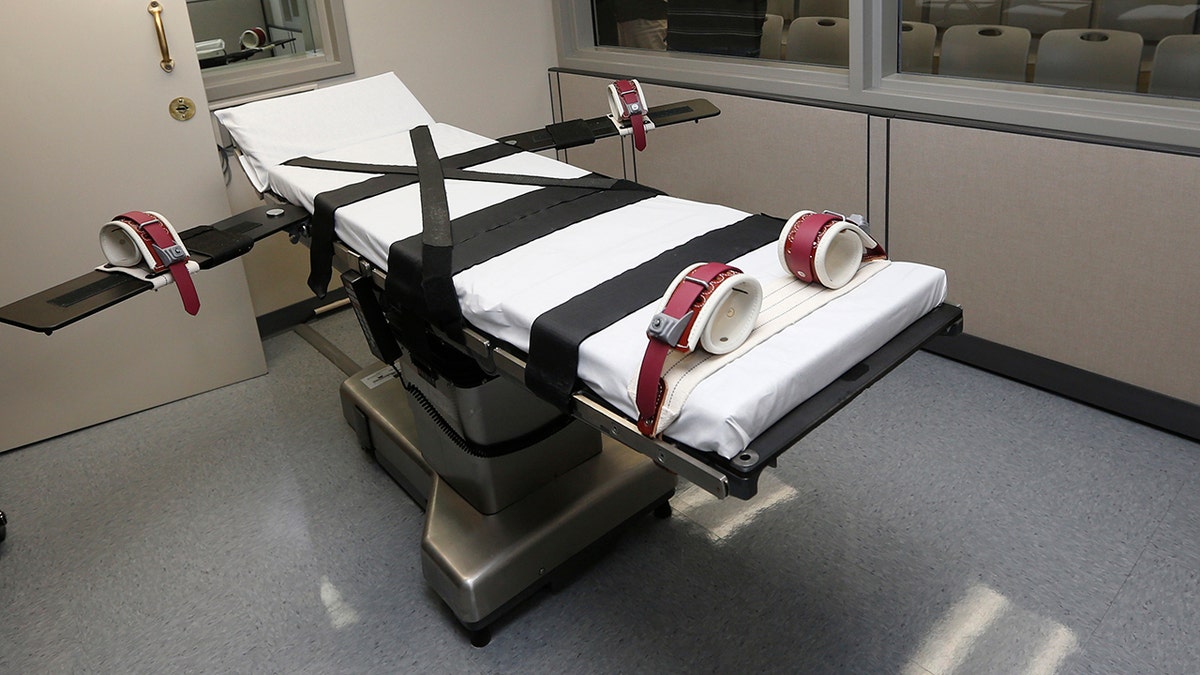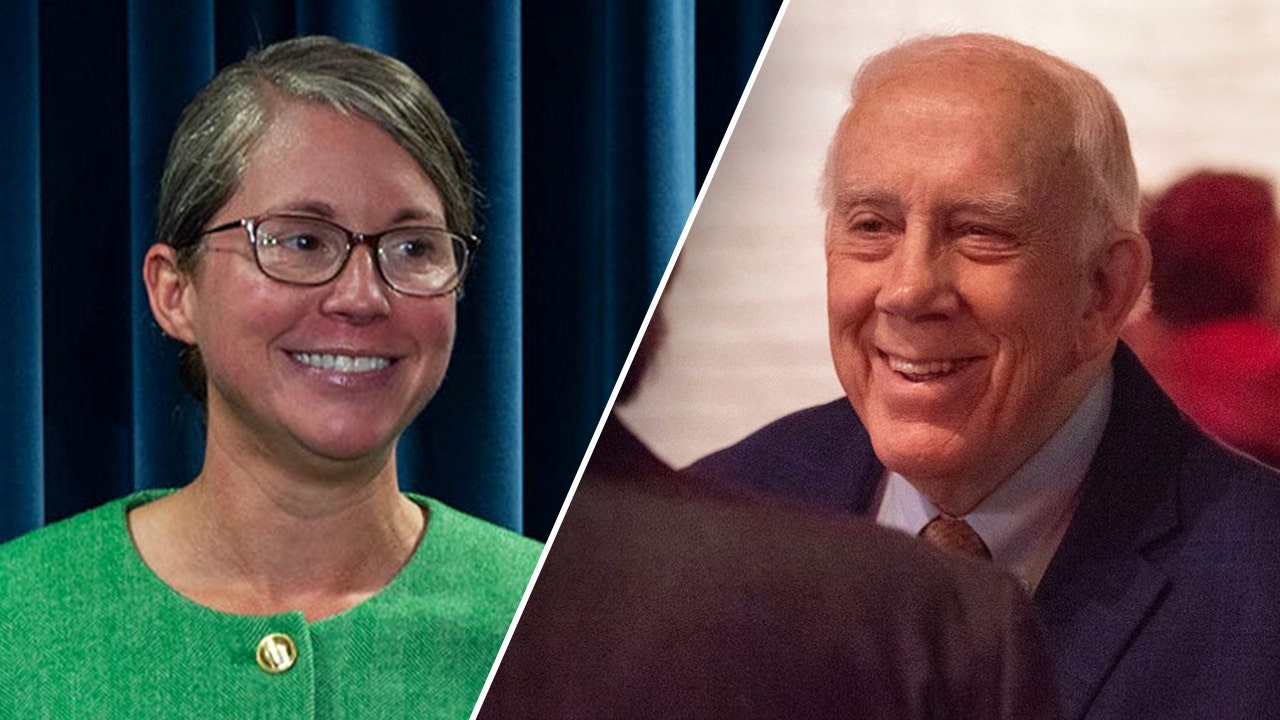Mississippi
Mississippi Courts Won’t Say How They Provide Lawyers for Poor Clients

In 2017, the Mississippi Supreme Court’s then-Chief Justice William Waller Jr. helped mandate that judges throughout the state explain in writing how they deliver on their duty to provide poor criminal defendants with a lawyer.
He hoped the rule would spur improvements in Mississippi’s patched-together public defense system, regarded by many legal experts as among the worst in the country.
Now, six years after the rule went into effect, only one of the 23 circuit court districts in the state has responded. The 22nd Circuit Court in southwest Mississippi became the first to comply this summer, according to the Supreme Court’s docket.
The requirement was part of a push to move “toward a statewide system,” said Waller, who retired a couple of years after it went into effect. He said he’s partly responsible for not enforcing it. “We should have started going court by court and asking them to show us their plans.”
Public defense systems across the country are overburdened and underfunded, but Mississippi stands out. Nationally, it ranks last in how much money it spends per capita on public defense, according to the Sixth Amendment Center, a nonprofit that advocates for a robust defense for the indigent — those who can’t afford their own lawyer. Mississippi is one of only eight states that rely on local officials to fund and deliver almost all public defense for people facing trial, according to the center.
Mississippi has long failed to monitor or evaluate local courts to see whether they’re delivering that defense, which is guaranteed by the Sixth Amendment of the U.S. Constitution. Without such oversight, no one knows whether all the state’s courts, especially smaller ones in the vast rural stretches of the state, are doing the job that’s required of them.
The Northeast Mississippi Daily Journal, ProPublica and The Marshall Project have identified courts that aren’t following the state Supreme Court’s rules on public defense, including judges who fail to appoint lawyers as early as required, or who deny counsel to defendants for inappropriate reasons. Even once appointed, some lawyers say they do little for defendants and that local judges know this.
Such problems show why it’s important for courts to explain how they provide public defense, said André de Gruy, who runs Mississippi’s Office of State Public Defender and has written a model plan for local courts that they could adapt to meet their needs. Without these plans, he said, “we can’t say whether we are in compliance with the Constitution.”
In the last three decades, there have been repeated efforts to overhaul Mississippi’s public defense system, including four state committees or commissions, two major reports by outside legal experts and numerous pieces of legislation. They’ve been largely unsuccessful.
There’s widespread agreement about the systemic problems: Defendants can sit in jail for months at a time without a lawyer. The way that many lawyers are paid gives them an incentive to cut corners. There are few full-time public defenders in the state.
“There is not much lawyering going on. I get them through the system and get them out of here,” an unidentified, part-time public defender bluntly told consultants for the Mississippi Bar Association as part of a state government effort to reform the public defense system in the 1990s.
In a 2003 study, the NAACP Legal Defense and Educational Fund reported that a lawyer on the Gulf Coast said that he never tried to locate or interview witnesses because by the time he’s been appointed, nine months to a year have typically passed since the crime.
“By then,” researchers wrote, recounting what the lawyer told them, “crime scenes have changed, witnesses have moved, and memories have faded.”
That study highlighted the case of a man arrested in the northeast Mississippi city of Tupelo for possession of crack cocaine. The court appointed three different lawyers in succession. The first two never spoke with the defendant and did not respond to his phone calls or letters. On the day before the trial, the third lawyer told the court that he had not prepared for his client’s case. The evidence against the man was so weak that he was acquitted by a jury after less than 15 minutes of deliberation. He’d spent eight months in jail.
From 2000 to 2011, several task forces successfully pressed for a series of reforms, including the creation of a state office to handle death penalty defense and indigent criminal appeals. That’s the office de Gruy now runs.
But reforms to public defense in local courtrooms remained out of reach. “I remember being very frustrated,” said Waller, who was part of those efforts after joining the state Supreme Court in 1998.
The sheer number of courts across the state, and the lack of coordination among them, is a factor in why it’s so hard to reform the system.
“In other states, any discussion of policy change takes place at one or two systems,” said David Carroll, director of the Sixth Amendment Center. “There are nearly 500 indigent defense systems in Mississippi.”
In 2009, Waller became chief justice and went on to play a key role in an ambitious effort to create rules of criminal procedure that would be shared by all courts in the state.
Eight years later, those statewide rules went into effect. For the first time, judges were required to write down exactly how they delivered on their obligation to provide lawyers for defendants who couldn’t afford one. The courts were then required to send those plans to the Mississippi Supreme Court for approval.
“The intent of the rule was, as much as possible, to have consistency across the state,” Waller said. “A lawyer would be able to look at the rules and know what the practice is, and it would be fairly consistent, and he wouldn’t be memorizing the Magna Carta every time he went into a new court.”

Waller knew it was a limited effort. But in the absence of legislation to create a statewide system for public defense or a movement by counties to hire full-time lawyers, the Supreme Court could at least encourage uniformity among courts and reject inadequate plans.
In combination with other new rules, including measures to make bonds less onerous and give defendants more opportunities to argue their case before a judge, he hoped counties would move to create full-time public defender offices.
That didn’t happen. To date, just seven counties have full-time public defender offices, and only the 22nd Circuit Court has filed the required paperwork laying out its indigent defense system. The Mississippi Supreme Court approved the plan last month.
The plan is not lengthy, but it shows that the 22nd Circuit’s lone judge knows what’s required by the Sixth Amendment and that she has developed a process for how she fulfills that duty. It says when appointed counsel should be provided to poor defendants, it directs judges to monitor attorneys’ performances, and it outlines a procedure to ensure that defendants don’t lose representation as their case moves from one court to another.
The Northeast Mississippi Daily Journal, The Marshall Project and ProPublica asked the court administrators in all 23 circuit court districts, as well as the county-level clerks in all 82 counties, if they have a written plan for indigent defense. Many would not comment, but clerks in nearly 20 counties said they don’t.
Waller called on the current justices to remedy the failure to enforce the public defense rule. Chief Justice Michael Randolph and Justice Jim Kitchens, who heads the court’s criminal rules committee, declined to comment.
At least a few judges aren’t only ignoring the requirement to write down how they provide lawyers for poor criminal defendants. They’re not following state rules on providing those lawyers in the first place.
The Daily Journal, ProPublica and The Marshall Project identified two courts that aren’t properly appointing lawyers for indigent defendants, according to Waller, legal experts and the rules of criminal procedure.
A lawyer who acts as a part-time judge in the small northeast Mississippi city of Guntown told a reporter that he usually handles defendants’ first appearances over the phone and doesn’t ask if they can afford a lawyer. This contravenes Mississippi’s criminal rules, which require that during a defendant’s initial court appearance, a judge should find out if that defendant can afford a lawyer and appoint one if not.
“They hear their charges and get a bond if they deserve one,” said Harry Sumner, the part-time judge. “I do not appoint a public defender at the initial [appearance] at that time.”
Told that this practice doesn’t meet the state standard for an initial appearance, Sumner said he believes that defendants waive those requirements when they agree to appear before a judge by phone. If someone wants a lawyer, he said, one could be appointed at a preliminary hearing, although he acknowledged that those hearings are rarely requested.
The state’s rules, however, are clear that while defendants held in jail may agree to appear before a judge by audiovisual means, the requirements of an initial appearance still apply.
In nearby Yalobusha County, a judge said he doesn’t move quickly to appoint a lawyer if a defendant posts bond and is released from jail.
“If they’re arrested on a felony and they’ve made bond, I’m not too quick to pull the trigger on a public defender, particularly if they’ve made a high bond,” said Yalobusha Justice Court Judge Trent Howell.
The rules, however, instruct judges not to base their decision about whether to appoint a lawyer on the ability of defendants or their friends or family to pay money to get them out of jail. Pressed on why he doesn’t abide by that instruction, Howell defended his approach. “It’s just human nature” to consider whether someone has been able to raise money for a bond, he said.
Even as courts have ignored the requirement to file their public defense plans, the Mississippi Supreme Court recently issued another rule to improve public defense. It’s supposed to eliminate what critics call the “dead zone” — the practice of withdrawing legal counsel from poor defendants after their initial appearance, leaving them without a lawyer as they wait to be indicted.
The Daily Journal, The Marshall Project and ProPublica found that many courts are not prepared to implement that rule either. That suggests that poor defendants will remain deprived of meaningful legal assistance as they wait months or years, often in jail, for prosecutors to decide whether to pursue felony charges.
De Gruy said the recent mandate to eliminate the dead zone offers courts an opportunity to grapple with much larger problems with public defense in Mississippi. “I was hoping,” he said, “this would be a reminder to the courts that they’ve got unfinished business.”

Mississippi
Southeast Mississippi Christmas Parades 2024 | WKRG.com

MISSISSIPPI (WKRG) — It’s beginning to look a lot like Christmas on the Gulf Coast and that means Santa Claus will be heading to town for multiple parades around the area.
WKRG has compiled a list of Christmas parades coming to Southeast Mississippi.
Christmas on the Water — Biloxi
- Dec. 7
- 6 p.m.
- Begins at Biloxi Lighthouse and will go past the Golden Nugget
Lucedale Christmas Parade
Mississippi
‘A Magical Mississippi Christmas’ lights up the Mississippi Aquarium

GULFPORT, Miss. (WLOX) – The Mississippi Aquarium in Gulfport is spreading holiday cheer with a new event, ‘’A Magical Mississippi Christmas.’
The aquarium held a preview Tuesday night.
‘A Magical Mississippi Christmas’ includes a special dolphin presentation, diving elves, and photos with Santa.
The event also includes “A Penguin’s Christmas Wish,” which is a projection map show that follows a penguin through Christmas adventures across Mississippi.
“It’s a really fun event and it’s the first time we really opened up the aquarium at night for the general public, so it’s a chance to come in and see what it’s like in the evening because it’s really spectacular and really beautiful,” said Kurt Allen, Mississippi Aquarium President and CEO.
‘A Magical Mississippi Christmas’ runs from November 29 to December 31.
It will not be open on December 11th, December 24th, and December 25th.
Tickets can be purchased online or at the gate.
The event is made possible by the city of Gulfport and Coca-Cola Bottling Company.
See a spelling or grammar error in this story? Report it to our team HERE.
Copyright 2024 WLOX. All rights reserved.
Mississippi
Mississippi asks for execution date of man convicted in 1993 killing, lawyers plan to appeal case to SCOTUS

Mississippi Attorney General Lynn Fitch, a Republican, is seeking an execution date for a convicted killer who has been on death row for 30 years, but his lawyer argues that the request is premature since the man plans to appeal to the U.S. Supreme Court.
Charles Ray Crawford, 58, was sentenced to death in connection with the 1993 kidnapping and killing of 20-year-old community college student Kristy Ray, according to The Associated Press.
During his 1994 trial, jurors pointed to a past rape conviction as an aggravating circumstance when they issued Crawford’s sentence, but his attorneys said Monday that they are appealing that conviction to the Supreme Court after a lower court ruled against them last week.
Crawford was arrested the day after Ray was kidnapped from her parents’ home and stabbed to death in Tippah County. Crawford told officers he had blacked out and did not remember killing her.
TEXAS LAWMAKER PROPOSES BILL TO ABOLISH DEATH PENALTY IN LONE STAR STATE: ‘I THINK SENTIMENT IS CHANGING’
Mississippi death row inmate Charles Ray Crawford, who was convicted and sentenced to death in 1994 in the 1993 kidnapping and killing of a community college student, 20-year-old Kristy Ray. (Mississippi Department of Corrections via AP)
He was arrested just days before his scheduled trial on a charge of assaulting another woman by hitting her over the head with a hammer.
The trial for the assault charge was delayed several months before he was convicted. In a separate trial, Crawford was found guilty in the rape of a 17-year-old girl who was friends with the victim of the hammer attack. The victims were at the same place during the attacks.
Crawford said he also blacked out during those incidents and did not remember committing the hammer assault or the rape.
During the sentencing portion of Crawford’s capital murder trial in Ray’s death, jurors found the rape conviction to be an “aggravating circumstance” and gave him the death sentence, according to court records.
PRO-TRUMP PRISON WARDEN ASKS BIDEN TO COMMUTE ALL DEATH SENTENCES BEFORE LEAVING

During the sentencing portion of Crawford’s capital murder trial, jurors found his prior rape conviction to be an “aggravating circumstance” and gave him the death sentence. (iStock)
In his latest federal appeal of the rape case, Crawford claimed his previous lawyers provided unconstitutionally ineffective assistance for an insanity defense. He received a mental evaluation at the state hospital, but the trial judge repeatedly refused to allow a psychiatrist or other mental health professional outside the state’s expert to help in Crawford’s defense, court records show.
On Friday, a majority of the 5th U.S. Circuit Court of Appeals rejected Crawford’s appeal.
But the dissenting judges wrote that he received an “inadequately prepared and presented insanity defense” and that “it took years for a qualified physician to conduct a full evaluation of Crawford.” The dissenting judges quoted Dr. Siddhartha Nadkarni, a neurologist who examined Crawford.
“Charles was laboring under such a defect of reason from his seizure disorder that he did not understand the nature and quality of his acts at the time of the crime,” Nadkarni wrote. “He is a severely brain-injured man (corroborated both by history and his neurological examination) who was essentially not present in any useful sense due to epileptic fits at the time of the crime.”

Photo shows the gurney of an execution chamber. (AP Photo/Sue Ogrocki, File)
CLICK HERE TO GET THE FOX NEWS APP
Crawford’s case has already been appealed multiple times using various arguments, which is common in death penalty cases.
Hours after the federal appeals court denied Crawford’s latest appeal, Fitch filed documents urging the state Supreme Court to set a date for Crawford’s execution by lethal injection, claiming that “he has exhausted all state and federal remedies.”
However, the attorneys representing Crawford in the Mississippi Office of Post-Conviction Counsel filed documents on Monday stating that they plan to ask the U.S. Supreme Court to overturn the appeals court’s ruling.
The Associated Press contributed to this report.
-

 Science1 week ago
Science1 week agoTrump nominates Dr. Oz to head Medicare and Medicaid and help take on 'illness industrial complex'
-

 Politics1 week ago
Politics1 week agoTrump taps FCC member Brendan Carr to lead agency: 'Warrior for Free Speech'
-
/cdn.vox-cdn.com/uploads/chorus_asset/file/25739950/247386_Elon_Musk_Open_AI_CVirginia.jpg)
/cdn.vox-cdn.com/uploads/chorus_asset/file/25739950/247386_Elon_Musk_Open_AI_CVirginia.jpg) Technology1 week ago
Technology1 week agoInside Elon Musk’s messy breakup with OpenAI
-

 World1 week ago
World1 week agoProtesters in Slovakia rally against Robert Fico’s populist government
-

 Health5 days ago
Health5 days agoHoliday gatherings can lead to stress eating: Try these 5 tips to control it
-

 News1 week ago
News1 week agoThey disagree about a lot, but these singers figure out how to stay in harmony
-

 Health2 days ago
Health2 days agoCheekyMD Offers Needle-Free GLP-1s | Woman's World
-

 News1 week ago
News1 week agoGaetz-gate: Navigating the President-elect's most baffling Cabinet pick















